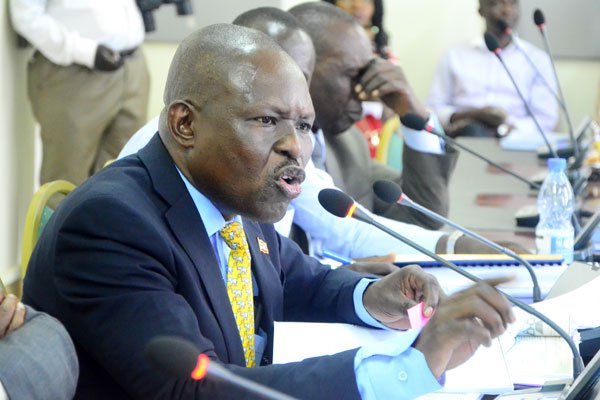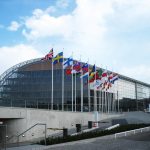A select task force by the parliamentary Committee on Commission, Statutory Authorities and State Enterprises (COSASE) purportedly investigating circumstances under which departed
Asians properties that were fully compensated for by the government ended up in hands of individuals and companies.
But queries are arising after MPs led by COSASE Sub-committee chair Makindye East legislator Ibrahim Kasozi, this weekend take take a month long trip to Canada and the UK, on what is primarily a fishing expedition.
Background issues:
=================
The repossession of formerly expropriated Asian properties in Uganda is mainly governed by the Expropriated Properties Act Cap. 87.
Who is eligible to apply for repossession?
1. Any former owner, who includes among other; a registered proprietor at the time of expropriation, a shareholder of a company (where the application is for repossession of company property)
2. A duly appointed attorney of any former owner. (some former owners donated powers of attorney to different individuals to act on their behalf and apply for repossession)
Was/is there need for company resolution when applying to repossess property belonging a company?
This was clearly not a requirement, as the same was not expressly provided for in the laws governing repossession. The divesture committee and other relevant authorities which were responsible for scrutinizing the documents of the applicants did not demand that company resolutions be presented either.
If the law allows a shareholder to apply for repossession of company property in his/her individual capacity then clearly there is no need for company resolution.
Is the physical return to Uganda within 120 days upon receiving authorization to repossess mandatory?
The Act uses mandatory language but the Courts of Law have held that the Act is a remedial statute and should be interpreted liberally as the sole purpose of the same is to return properties taken over by the military regime of Idi Amin to the former owners. If that particular provision were to be strictly applied or interpreted, it would mean that, former owners under genuine disability would be shut out of the principle remedy of the Act.
What is the effect of a repossession letter viz a viz repossession certificate?
A letter of repossession has the same effect as a repossession certificate and grants the applicant with equitable rights in the repossessed property.
Once a certificate of repossession is issued, it is deemed to be proof that all the necessary steps of verification have been under taken under the Expropriated Properties Act, Cap 87. The Minister cannot revisit this decision and the only remedy for one who is aggrieved is to appeal to High Court.
Can a certificate of repossession be cancelled and if so who has the power to cancel it?
Once a certificate of repossession has been issued, the Minister and/or the Departed Asians’ Property Custodian Board ceases to have any authority whatsoever to interfere, cancel the certificate of repossession or cause any investigation in to a property.
The Attorney General of the Republic of Uganda, basing on case(s) decided by the Supreme Court of Uganda has opined to this effect and clearly stated that irrespective of the allegations, after the Minister has issued a repossession certificate, the Departed Asians’ Property Custodian Board is estopped from interfering with the property has mandate to inquire into the property of a person to whom a certificate of repossession was issued.
In a legal opinion to the Finance Minister Mr. Matia Kasaija, on August 15, 2019, the Attorney General Mr William Byaruhanga said such properties cannot be subjected to a further Parliament inquiry.
The Attorney General was responding to a letter by the Departed Asians Properties Custodian Board that is lying claim to Plot 98-104 Nakivubo Road, which belongs to Hajji Abdu Kasai, a businessman.
The AG explains that the powers of the Departed Asians’ Property Custodian Board are governed by Section 4 of the Assets of Departed Asians Act Cap 83, which stipulates that the Board shall take over and manage all assets transferred to it by virtue of Section 13 of the Assets of Departed Asians Decree, 1973.
He added that the same Section 13 mandates the Board to discharge all the liabilities to it by this Act, collect all debts or other monies due to the departed Asian; and may sell or otherwise deal with such assets in the same way as the departed Asian may do.
However, he explains that the Expropriated Properties Act Cap 87 and the Expropriated Properties (Repossession and Disposal)(No.1) Regulations S.I 87-8 limit the involvement of DAPCB and the Minister of Finance to transfer property already allocated to a person and take it back to the former owner.
“Section 3 of the Expropriated Property Act Cap 87 provides; (J) Subject to this Act; the Minister shall have the power to transfer to the firmer owner of any property or business vested in the Government under this Act that property or business,” the Attorney General’s letter reads in part.
He adds: “Nothing in this Act shall be construed as empowering the Minister to Transfer property or business to a former owner unless the Minister is satisfied that the former owner shall physically return to Uganda, repossess and actively manage the property or business. Subsection (2) shall not apply to a former owner who jointly participates with the Government in the ownership and management of any property or business pursuant to section 5.”
My Byaruhanga explains that in light of the above provisions, “it is evident that the DAPCB’s involvement is limited to only when the property is still vested in the Government by virtue of Section 2 of the EPA and before the issuance of a repossession certificate by the Minister”.
Remedy provided by the EPA
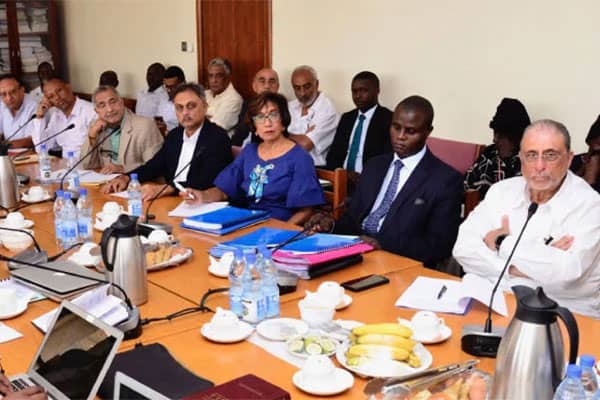
The only remedy that is provided for under the law governing expropriated properties is that any person aggrieved by any decision made by the Minister under the Act, may within 30 days from the date of communication of the decision to him or her appeal to the High Court.
The law is very clear on when the Minister and/or Departed Asians’ Property Custodian Board ceases to have any authority whatsoever to interfere with a properties for which repossession certificates have been issued. The same law is also clear on the remedy and procedure to be followed by any party aggrieved by the issuance of the repossession certificate(s) over any property.
As a matter of fact, the law sets a limit of thirty (30) days from the date of issuance of the repossession certificate for aggrieved party to appeal to High Court.
Is the law being followed by the relevant authorities and COSASE?
The answer is a bold NO.
Time and again, the Departed Asians’ Property Custodian Board through its Executive Director, a one George William Bizibu has continued to reallocate properties which were repossessed over twenty years ago to his close associates, including but not limited to Hon. Betty Amongi the outgoing Minister for Lands, Housing and Urban Development.
This is of course in total disregard of the law, decided cases and the advice of the Attorney General.
These allocations have been successfully challenged in Courts of law which have always held that the decisions to allocate properties which were duly repossessed are unlawful, illegal and a nullity.
For example, in his August 15, 2019 l letter to the Ministry of Finance, the Attorney General quotes a Supreme Court ruling in the case between Mohan Musisi and Kiwanuka Asha Chard. In the case, Justive Mulenga held: “The Minister has no power to cancel a Certificate issued under the Act. in providing in section 14 of the Act, that a person aggrieved by a decision made by the Minister under the Act may appeal to the High Court, Parliament did not expressly reserve in tire Minister, any power to review such a decision upon request by an aggrieved person.”
DAPCB ED Bizibu in spotlight over recent developments concerning repossessed properties
The Departed Asians’ Property Custodian Board through its Executive Director George William Bizibu, while deliberately ignoring legal advice from the Attorney General, court rulings and judgments has now instigated a probe by the COSASE (The Parliamentary Committee on Commissions, Statutory Authorities and State Enterprises), by sending a “confidential” dossier to Parliament alleging that several properties were fraudulently repossessed and should be taken over by government.
Is this a racist motive?
The probe is directly targeting Ugandans of Asian descent who repossessed properties as duly appointed attorneys, bought formerly expropriated properties from the registered proprietors and/or are majorly managing various properties on behalf of the registered properties currently living in different parts of the world, including but not restricted to Canada, the United Kingdom and United States of America.
The COSASE which has also turned a blind eye to the Attorney General’s opinion and various court decisions is now accusing the targeted Ugandans of Asians descent of among other things repossessing properties which were duly compensated for and using “forged” powers of attorney among other documents.
Who are being targeted?
This most shocking element is that the registered proprietors of these targeted properties have not complained or are not complaining that they have been deprived and/or defrauded of their properties by the individuals that the probe is targeting now. Therefore where does a one George William Bizibu who has no propriety interest whatsoever in these properties get the right to complain? Where does the cronies he is using, disguising as “whistle blowers” get the right to complain yet they do not have any propriety interest in these properties. The “complainants” cannot claim to be acting in government interest either because upon issuance of a repossession certificate, government ceases to any interest in these properties, rather than property tax (property rates) and stamp duty where applicable.
The COSASE has also surprisingly adopted a mode of operation which is clearly against the rules of natural justice. It has not provided the “accused” individuals with the claims or allegations against them, the details of the complaints and over which properties the allegations arise but has rather made blanket accusation. It is now directing each individual to avail all documents used to apply for repossession and management of the properties.
What is the motive behind demanding for documents relating to arrangement between individuals and/or private companies over management of private property? Is private property now part of Commissions, Statutory Authorities and State Enterprises?
Some of the targeted individuals participated in the repossession exercise over twenty years ago and all these documents the COSASE wants were duly submitted to the relevant authorities then and the Departed Asians’ Property Custodian Board must be having all these documents.
What happened to the documents which were submitted and verified by the Divesture Committee?
Is the Departed Asians’ Property Custodian Board through the direct influence of a one George William Bizibu deliberately hiding these documents or has tampered with the documents?
Are the documents lost?
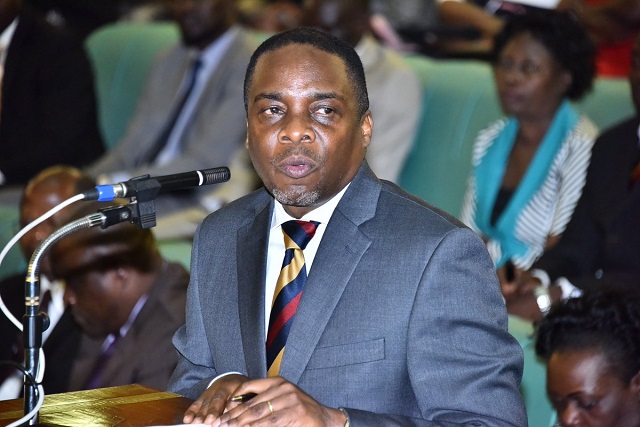
The only logical presumption is that the documents have deliberately been tampered with. Working on the presumption that the said documents are lost yet this is a whole government body that we are talking about, how then does COSASE expect individuals to have all documents they used to repossess properties over twenty years ago?
Ordinarily, he who alleges must prove. If George William Bizibu and COSASE claim the some of the documents used by the individuals they are selectively targeting are forged, then the onus is on them to prove and not the other way round.
The whole probe is time barred and misconceived as upon issuance of repossession certificates, government and/or any of its agents including the Minister and/or Departed Asians’ Property Custodian Board ceased to have any interest in the said properties.
In the absence of any complaints from the registered proprietors of the various properties, the whole probe by COSASE is a mere scheme to persecute the individuals managing these properties, deprive the registered proprietors of their properties and reverse the repossession exercise.
Compensation of Asians
The COSASE also claims some of the properties which were repossessed were actually compensated for by the government. It should avail the proof of these alleged compensation if any as it is in the best position to access any information regarding compensation.
Can the alleged compensation for these properties be traced to the intended registered proprietors?
There are three categories of Asians that were supposed to have been compensated; the compensation was only in respect of movable assets as land as well as buildings beyond ten years were valued for compensation. Clearly the properties which were repossessed were not compensated for.
Asians of undetermined nationality: As of 1977 following an agreement between the government of Uganda and UNHCR, these were to be paid a total of Shs. 40,509,996/56 (forty million five hundred nine thousand nine hundred ninety six and fifty one cents only). The payment was to be in 21 installments over a period of 11 years. However only the first three instalments were of Shs5,509,966/51/= were made and no further payments were made. Did these payments reach the intended recipients?
Indian Citizens: the information available is that the arrangement of compensating this category of persons was between the Government of Uganda and the Government of India directly.
British Citizens: In 1987 an agreement was reached between the Government of Uganda and the British Government for government to compensate the 67 elderly British Asians whose properties had been expropriated. Then in 1991, there was a world-wide appeal to Asians to come and repossess their properties. 19 elderly British Asians were subsequently compensated while 32 applied for and repossessed their properties.
If the compensation was majorly for movable assets other than immovable real property like land, then what compensation is the COSASE referring to? Only the 19 elderly British Asians can be confirmed to have been compensated for real immovable properties.
The some members of the COSASE Sub-Committee are planning to travel to Canada and the UK, this weekend apparently to verify information concerning repossessed properties and the alleged compensation.
There is no better example to the old saying that history repeats itself than what is happening now.
In the early 1970’s just before Idi Amin expelled persons of Asian descent from Uganda, there was a citizenship verification exercise whose motives were not known but at the end of it all the expulsion was the result. The current probe is a move to reverse the repossession exercise.
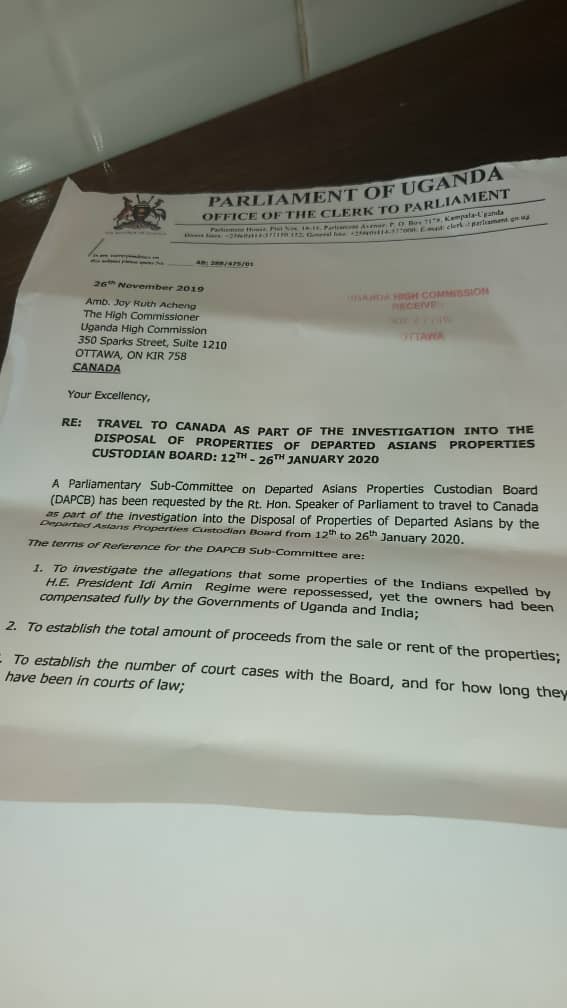
COSASCE team investigative visit to Canada
The selected members are also travelling the instigator of the probe, a one George William Bizibu. He is not a member of parliament, he is not on the COSASE and/or Sub-committee and above all he is the accuser. Does he run another office of the Departed Asians’ Property Custodian Board in Canada? The “accuser” is travelling with what is clearly the “panel” of judges in this probe. So the “accuser” is clearly in bed with the “judges”. Is the probe and/or any recommendations that will be made thereafter be fair to the targeted Asians? The answer is a definite no.
Petition to Parliament
The above notwithstanding, some of the Ugandans of Asian descent being targeted by the probe have petitioned the Constitutional Court challenging broad day light abuse of human rights and inconsistent actions of the COSASE, the Departed Asians’ Property Custodian Board and George William Bizibu in his individual capacity. A copy of the petition is attached hereto and marked “Annexure C”.
The whole intention of the probe is clearly mischievous and only intended to instigate another expropriation of private property. It is targeting small group of Ugandans of Asians descent with intention frustrating their businesses as property managers, possibly extorting money from them through harassment and publicly embarrassing them with unfounded accusations and above all reversing the repossession exercise
The continued disregard of the law, legal advice from the Attorney General and decided cases by those targeting Ugandans of Asian descent and seeking to reverse the repossession exercise and deprive a certain category of individuals of their private property while hiding behind an organ of government should be condemned in the strongest terms by the international community.




